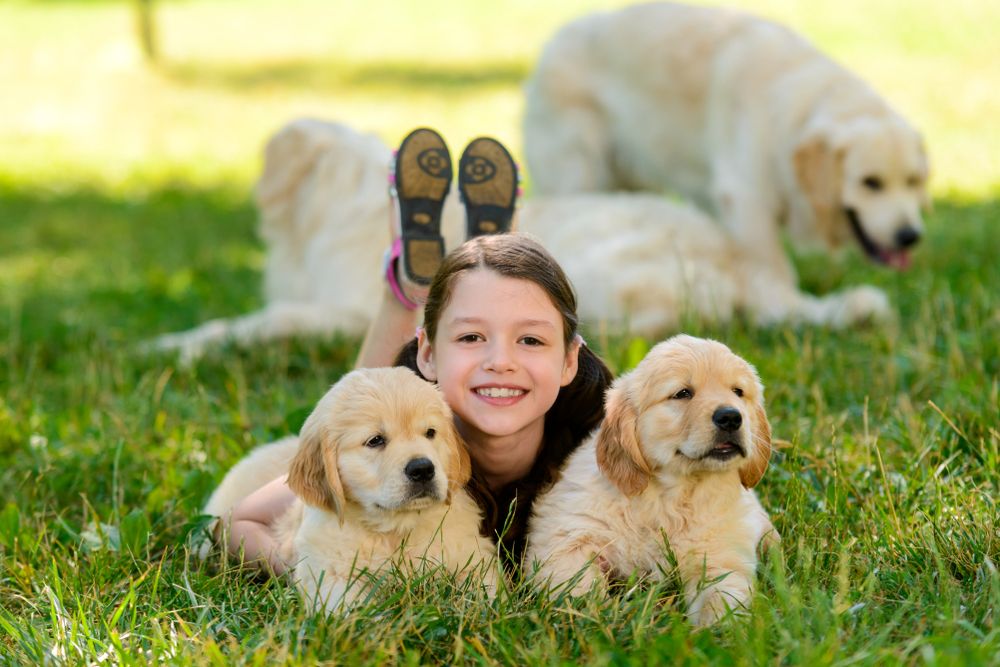Bringing a dog into your life is one of the most rewarding decisions you can make—but it’s not one to take lightly. Choosing the right dog breed involves more than just falling for a cute face. Your lifestyle, living space, activity level, and experience with pets all play a role in determining which breed is the best match for you.
Whether you’re a city dweller with limited space or an active family with room to roam, here’s how to find the right dog breed for your needs.
Consider Your Living Space
The size of your home—and whether you have a yard—can influence which breed is best for you.
Apartment or Condo Living
If you live in a small space or don’t have outdoor access, look for breeds that are content indoors and adapt well to limited room. Some options include:
-
French Bulldog: Quiet, low-energy, and compact
-
Cavalier King Charles Spaniel: Friendly and content with short walks
-
Shih Tzu: Small and suited to indoor living
Avoid high-energy working breeds unless you’re committed to long daily walks or have access to a dog park.
Homes with Yards
If you have outdoor space, larger or more active breeds will thrive. These dogs appreciate room to run and play:
-
Labrador Retriever: Family-friendly and energetic
-
Border Collie: Highly intelligent and loves to stay busy
-
Australian Shepherd: Energetic and great for active households
Even with a yard, regular walks and mental stimulation are still essential.
Think About Your Activity Level
Dogs vary greatly in their energy and exercise needs. Matching a dog’s energy to your own helps prevent behavioral problems and ensures both of you are happy.
Active Lifestyles
Love hiking, running, or being outdoors? High-energy dogs will love tagging along. Consider:
-
Vizsla: Athletic, affectionate, and trainable
-
Jack Russell Terrier: Small but endlessly energetic
-
Siberian Husky: Built for endurance and outdoor adventures
These breeds need consistent exercise and engagement to avoid becoming destructive.
Low-Key or Busy Lifestyles
If your days are busy or you prefer a calmer pace, consider breeds that are content with shorter walks and couch time:
-
Basset Hound: Gentle and laid-back
-
Pug: Playful but low-maintenance
-
Bulldog: Loyal and easygoing, with minimal exercise needs
Don’t forget mental stimulation—even calm dogs need toys, training, and interaction.
Assess Your Experience Level
Some dog breeds are easier for first-time owners than others. If you’re new to pet parenting, it’s wise to choose a breed that’s more forgiving and easier to train.
Best for First-Time Owners
These breeds are typically friendly, adaptable, and respond well to training:
-
Golden Retriever: Loyal, loving, and eager to please
-
Boxer: Energetic but playful and affectionate
-
Standard Poodle: Smart, obedient, and hypoallergenic
Avoid very independent, stubborn, or intense working breeds if you’re still building your confidence as a dog owner.
Factor in Allergies and Shedding
If you or someone in your household has allergies, or you just want to avoid hair all over your clothes and furniture, coat type matters.
Hypoallergenic Breeds
No dog is 100% hypoallergenic, but some shed less and produce less dander:
-
Miniature Schnauzer: Low-shedding and intelligent
-
Portuguese Water Dog: Curly coat and allergy-friendly
-
Yorkshire Terrier: Fine, hair-like coat and minimal shedding
Regular grooming and vacuuming still help manage allergens.
Heavy Shedders
If you don’t mind fur on your clothes, the following breeds are adorable—but require frequent brushing:
-
German Shepherd: Loyal and intelligent but sheds heavily
-
Alaskan Malamute: Thick double coat requires maintenance
-
Golden Retriever: Gorgeous but high-shedding
Invest in a good vacuum and a lint roller if you choose one of these beauties.
Match Breed Temperament to Your Household
Your family size and lifestyle also matter. Some dogs love constant activity and social interaction, while others are more reserved or prefer a quiet home.
Great with Kids
If you have young children, choose a breed known for patience and friendliness:
-
Labrador Retriever: Gentle, playful, and tolerant
-
Beagle: Curious and affectionate
-
Bernese Mountain Dog: Calm giant with a sweet nature
Always supervise young children with any dog, regardless of breed.
Better for Singles or Couples
If you’re living solo or as a couple, consider breeds that bond closely with their owners and thrive on companionship:
-
Chihuahua: Fiercely loyal and compact
-
Greyhound: Surprisingly low-energy and affectionate
-
Cocker Spaniel: Adaptable and loving
Make sure to meet the dog’s social and exercise needs even if your household is small.
Be Honest About Grooming Time
Long-haired breeds look stunning, but they come with grooming demands. Consider how much time (or money) you’re willing to spend maintaining your dog’s coat.
Low-Maintenance Grooming
If you want minimal brushing and fewer baths:
-
Short-haired Dachshund
-
Boston Terrier
-
Whippet
High-Maintenance Grooming
These breeds require regular brushing or professional grooming:
-
Afghan Hound
-
Shih Tzu
-
Bichon Frise
Grooming is part of a dog’s health—don’t ignore it, or it may cause skin and coat issues over time.
Consider Your Local Climate
Weather can affect your dog’s comfort. If you live in a hot or cold climate, match your breed to the environment.
-
Cold climates: Huskies, Newfoundlands, Bernese Mountain Dogs
-
Hot climates: Basenjis, Chihuahuas, American Foxhounds
Short-nosed breeds like Bulldogs or Pugs may struggle in heat due to breathing issues. Coat type and body build both affect weather tolerance.
Don’t Forget About Rescues and Mixed Breeds
While this guide focuses on purebreds, don’t overlook mixed-breed dogs. Many adoptable pups at shelters and rescues are just as loyal, healthy, and loving as purebreds—and often come with fewer breed-specific health issues.
Ask about temperament, energy level, and size when adopting. Rescue staff can help match you to the right dog.
Final Thoughts
There’s no one-size-fits-all answer when choosing the perfect dog breed—but there is a perfect match for everyone. Start by honestly assessing your space, lifestyle, energy level, and experience. From there, look for a breed (or mix) that complements your habits rather than conflicts with them.
The best dog for you isn’t the trendiest or most Instagrammable—it’s the one who fits into your life, shares your rhythm, and makes every day better just by being there.



